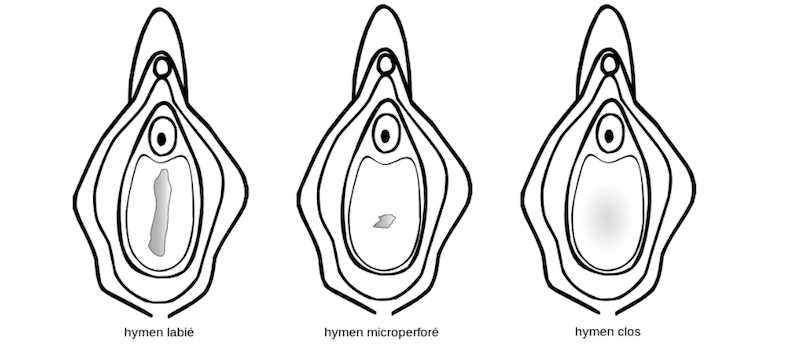One more step in favor of women’s rights! Virginity testing of raped women is now banned in Pakistan’s most populous province. In this country where “virginity” is very important, these tests were used in particular to identify victims of rape in order to exclude them from a possible marriage.
Opponents of these reviews, which include what is commonly referred to as the “two finger test“, had formulated requests to make these practices illegal.
The Lahore High Court ruled that these tests, which it now declares illegal, “constitute an assault on the dignity of women victims, and are therefore contrary to the right to life and the right to dignity.“
Read also : Will the virginity certificate soon be penalized?
More violence for rape victims
The supporters of these acts defend themselves by ensuring that they can gain a better understanding of a woman’s sexual past – which often results in the discrediting of rape victims.
In the name of these values of the honor of women and of the family, rape victims in Pakistan are often stigmatized, and assaults very little reported.
This judgment was “a necessary step in the right direction to improve investigations and judicial processes, making them fairer for victims of rape and sexual assault“, said the lawyers behind the request.
In December, a new law aimed at combating rape banned the “two finger test“, which involves inserting two fingers into the vagina of the alleged rape victim to determine whether or not she has had sex.
But this new text does not prohibit a visual examination of the hymen, to observe possible blows and injuries.
The hope of a national ban
A similar case is pending in the Singh High Court, and women’s rights advocates hope the Lahore ruling will set a precedent for, ultimately, a nationwide ban.
In neighboring India, the “two finger test“has been banned since 2013, and Bangladesh followed in 2018.
The World Health Organization (WHO) considers that there is no scientific interest in these reviews, and considers them a violation of human rights.
 Cherry tomatoes contaminated with salmonella: 92 sick and 1 dead
Cherry tomatoes contaminated with salmonella: 92 sick and 1 dead  A better coaching method can make a person grow
A better coaching method can make a person grow  What is the method to prevent diabetes in children?
What is the method to prevent diabetes in children?  What are the effective factors in causing stomach ulcers?
What are the effective factors in causing stomach ulcers?  Why do embarrassing memories seem to appear at night?
Why do embarrassing memories seem to appear at night?  The amazing link between SARS-CoV-2 infection and newly started diabetes
The amazing link between SARS-CoV-2 infection and newly started diabetes  WHO says monkey pox is not a global emergency right now
WHO says monkey pox is not a global emergency right now  Single cell RNA sequencing uncovers new mechanisms of heart disease
Single cell RNA sequencing uncovers new mechanisms of heart disease  Hepatitis of unknown origin: 3 new deaths and 228 cases worldwide
Hepatitis of unknown origin: 3 new deaths and 228 cases worldwide 